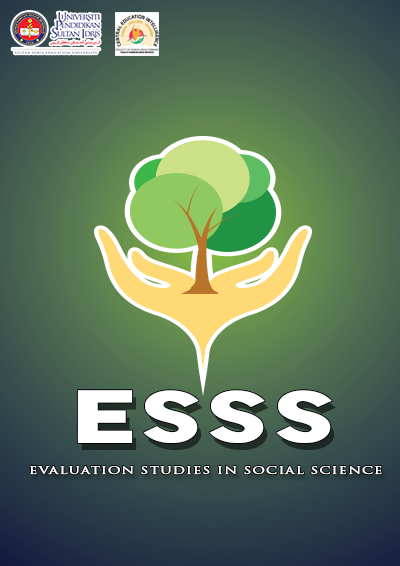A Systematic Literature Review with Bibliometric Meta-Analysis of IoT and AI Technology Adoption in Education
DOI:
https://doi.org/10.37134/esss.vol2.sp.3.2021Keywords:
Internet of Things, artificial intelligent, meta-analyses, industrial revolutionAbstract
Education has endured innumerable developments and variations according to the development of technology and science. Education is one of the main components that uphold the development of a country. Therefore, it is the liability of a country in designing an education system that makes students seek education from every place inhabited at any time. The use of the current technology as Internet of Things (IoT) and Artificial Intelligent (AI) has become an inclination in 21st-century education in providing learning aids that are technological and digital. The purpose of this systematic survey is to identify peer-reviewed literature on the adoption of the Internet of Things and Artificial Intelligent in education. Scopus and Web of Science citation databases are used in the data-gathering phase. Preferred Items for Systematic Reviews and Meta-Analyses (PRISMA) is used as prior approach on this study to review the topic related literatures. Therefore, PRISMA approach and keyword search were extracted and analysed. This bibliographic data of articles published in the journals over the seven years were extracted. VOS viewer was used to analysing the data contained in all journals. The findings show that reviews are showing the utilization and acknowledgment of both technologies in education. Additionally, shows the utilization of both technologies positively affects enhance understanding of the subject among students. However, there is still space to advance its ease of use in education, which is presently in the 4.0 education shift following the improvement of the Industrial Revolution (IR) 4.0. This systematic review found that there is still scope for studies related to IoT and AI. Therefore, researchers in the future need to conduct research related to the integration of these two technologies in education, primarily as student learning materials.
Downloads
References
Albahri, O. S., Zaidan, A. A., Albahri, A. S., Zaidan, B. B., Abdulkareem, K. H., Al-qaysi, Z. T., Alamoodi, A. H., Aleesa, A. M., Chyad, M. A., Alesa, R. M., Kem, L. C., Lakulu, M. M., Ibrahim, A. B., & Rashid, N. A. (2020). Systematic review of artificial intelligence techniques in the detection and classification of COVID-19 medical images in terms of evaluation and benchmarking: Taxonomy analysis, challenges, future solutions and methodological aspects. Journal of Infection and Public Health, 13(10), 1381–1396
Aldowah, H., Ul Rehman, S., Ghazal, S., & Naufal Umar, I. (2017). Internet of Things in higher education: A study on future learning. Journal of Physics: Conference Series, 892(1).
Al-Qozani, H., & Aleryani, A. (2018). The Impact of IoT on the Higher Education. Saba Journal of Information Technology and Networking, 2(2), 38–48.
Aristovnik, A., Keržič, D., Ravšelj, D., Tomaževič, N., & Umek, L. (2020). Impacts of the COVID-19 pandemic on life of higher education students: A global perspective. Sustainability (Switzerland), 12(20), 1–34.
Bagheri, M., & Movahed, S. H. (2017). The effect of the Internet of Things (IoT) on Education Business Model. Proceedings-12th International Conference on Signal Image Technology and Internet-Based Systems, SITIS 2016, 435–441.
Bakla, A. (2019). A critical overview of Internet of Things in education. Mehmet Akif Ersoy Üniversitesi Eğitim Fakültesi Dergisi, 49, 302–327.
Chen, S. (2018). China’s schools are quietly using AI to mark students’ essays… but do the robots make the grade? Society, South China Morning Post. Available at: https://www.scmp.com/ news/china/society/article/2147833/chinas- schools-are-quietly-using-ai-mark-students- essays-do.
Goksel, N., & Bozkurt, A. (2019). Artificial intelligence in education: Current insights and future perspectives. Handbook of Research on Learning in the Age of Transhumanism, 262(5568), 224–236.
Marquez, J., Villanueva, J., Solarte, Z., & Garcia, A. (2016). Preface. Advances in Intelligent Systems and Computing, 445(February 2020), V–VI. https://doi.org/10.1007/978-3-319-31232-3
Narayan, V., Herrington, J., & Cochrane, T. (2019). Design principles for heutagogical learning: Implementing student-determined learning with mobile and social media tools. Australasian Journal of Educational Technology, 35(3), 86–101.
Nawi, M. Z. M. (2020). Transformasi pengajaran dan pembelajaran multimedia dalam Pendidikan Islam : Satu perbincangan. Journal of ICT in Education, 7(2), 14–26.
Nurul ’Ain Saffar Ullah, Ibrahim, M. N., & Bejau, A. M. (2019). Pelaksanaan Internet Of Things (Iot) dalam pembelajaran koperatif Pendidikan Seni visual pembelajaran abad ke 21. Journal of Chemical Information and Modeling, 53(9), 242–249.
Ocaña-Fernández, Y., Alex Valenzuela-Fernández, L., & Lourdes Garro-Aburto, L. (2019). Inteligencia artificial y sus implicaciones en la educación superior artificial intelligence and its implications in higher education. Propósitosy Representaciones, 7(2), 536–568.
Salsidu, S. Z., Azman, M. N. A., & Abdullah, M. S. (2017). Tren pembelajaran menggunakan multimedia interaktif dalam bidang pendidikan teknikal: Satu sorotan literatur. Sains Humanika, 9(1–5).
Sierra-Correa, P. C., & Cantera Kintz, J. R. (2015). Ecosystem-based adaptation for improving coastal planning for sea-level rise: A systematic review for mangrove coasts. Marine Policy, 51, 385–393. https://doi.org/https://doi.org/10.1016/j.marpol.2014.09.013.
Suparno, P. (2019). Menyikapi penggunaan artificial intelligence (AI, kecerdasan buatan) dalam Pendidikan Fisika. Seminar Pendidikan Nasional, 1–12.
Tanveer, M., Hassan, S., & Bhaumik, A. (2020). Academic policy regarding sustainability and artificial intelligence (AI). Sustainability (Switzerland), 12(22), 1–13.
UNESCO. (2020). Education in a post-COVID world : Nine ideas for public action International Commission on the Futures of Education. 26.
UNESCO. (2019). Artificial intelligence in education: challenges and opportunities for sustainable development. Working Papers on Education Policy, 7, 46. https://en.unesco.org/themes/education-policy
Zawacki-Richter, O., Marín, V. I., Bond, M., & Gouverneur, F. (2019). Systematic review of research on artificial intelligence applications in higher education – where are the educators? International Journal of Educational Technology in Higher Education, 16(39), 1-27.


